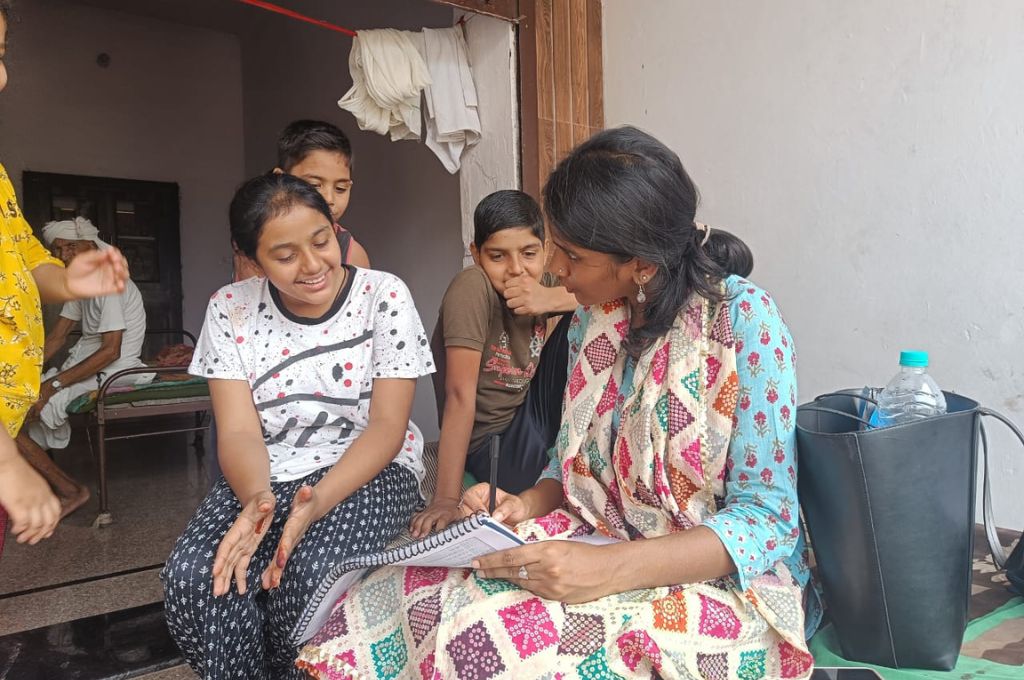
In August 2023 I visited Saypura, a village near Jaipur, as part of the Annual Status of Education Report (ASER) 2023 survey. ASER is a nationwide citizen-led household survey that provides a snapshot of the status of children’s schooling and learning in rural India. In 2023, ASER explored the abilities and aspirations of youth aged 14-18 across 28 districts in India. It also assessed their awareness levels and the activities they engage in.
Our team of five surveyors set out in two directions. I was particularly excited about testing new tools that we were using to assess digital and financial skills with young people in Saypura. In most households we surveyed, the parents wanted to check on their children’s answers. They were constantly seeking validation, asking questions such as “Is my child correct?”, or “Are they doing well?” This reminded me of the days when my parents would worry about my academic life.
But it wasn’t just the parents who influenced the youth being surveyed. One household that we visited had four kids—two boys and two girls. The eldest, Durga,* was in the 14–18 age group. I noticed a bicycle in the yard; when I asked about it, the girls said that they were scared to ride it, while the boys boasted about their cycling skills. It became quite clear that although there was only one eligible survey participant, we would have to engage the other three if we wanted to complete our survey properly.
The brothers teased Durga and questioned her capabilities when she started the assessment. One could tell that this was affecting her morale. To make the survey process more comfortable for Durga, my co-surveyor engaged the brothers, making them work on difficult division questions. Durga heaved a sigh of relief, which translated into her body language as well. While initially hesitant to share or even think about her aspirations, she later expressed that she wanted to be a doctor just like her uncle in the next town.
At the next house, we met a grandmother who wanted to wake up all five of her grandchildren from their siesta just so they could participate in the survey. Only one of them was eligible to participate. But unlike in previous households, the woman praised her granddaughter and told us that she was the youngest in her community to be admitted to college. The household environment was so promising that the young girl surprised us by answering all our questions swiftly.
As we sat under a tree at the end of the day, I reflected on how there are different ways families impose or foster learning—whether through teasing, expressing concern, or nudges such as a mother’s gaze guiding her child’s actions or a neighbour encouraging his friend to complete the survey “like a boss”. Nevertheless, all of them wanted their child to do better than the rest, and that was perhaps what they had in common.
Angel Mohan leads partnerships and programme development at Pratham. Read the original story here.
*Name changed to maintain confidentiality.
—
Know more: Learn why women in rural Maharashtra who were participating in a survey were reluctant to talk about the amount of gold they had saved.
Do more: Connect with the author at angel.mohan@pratham.org to learn more about and support her work.



